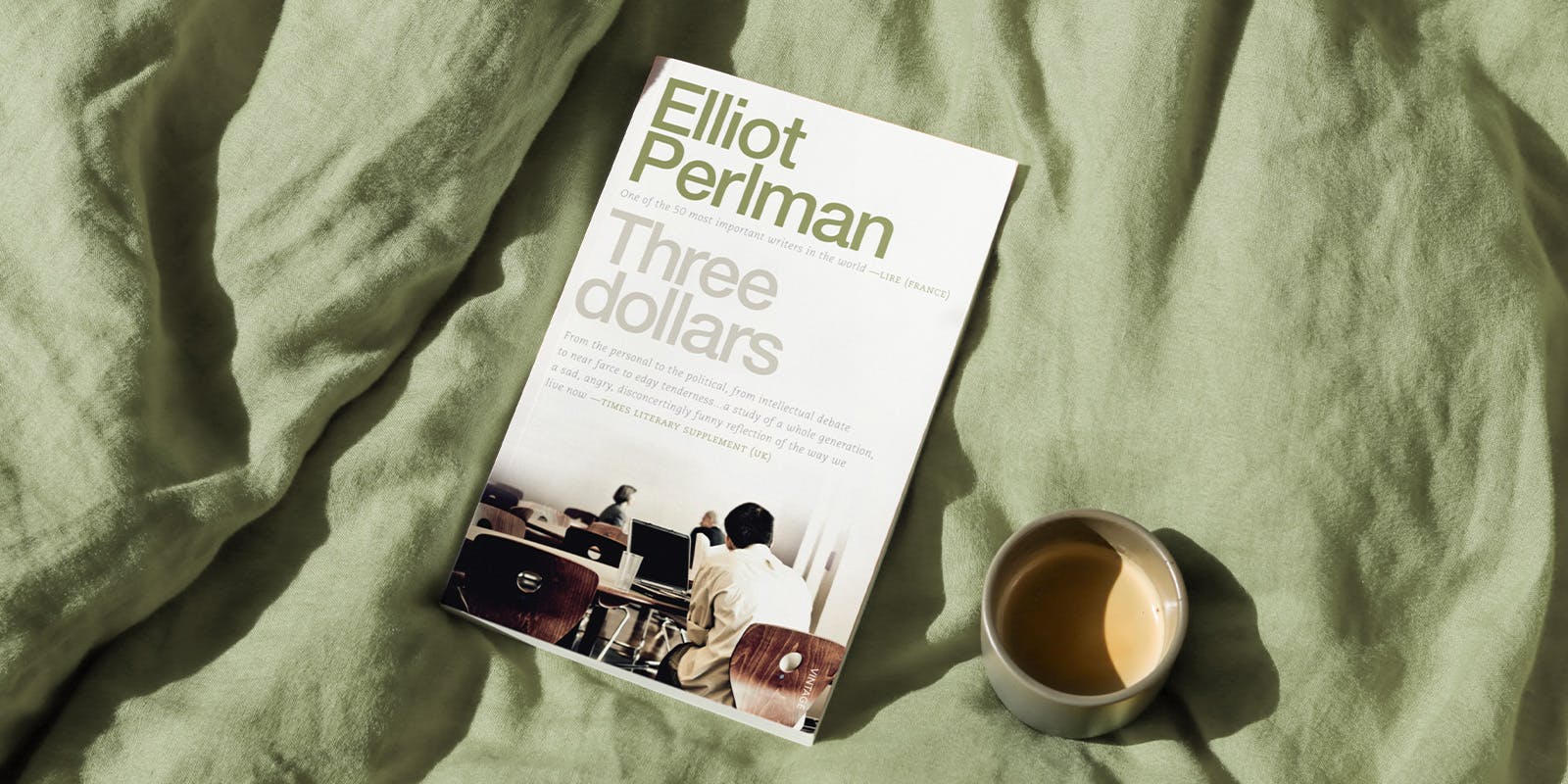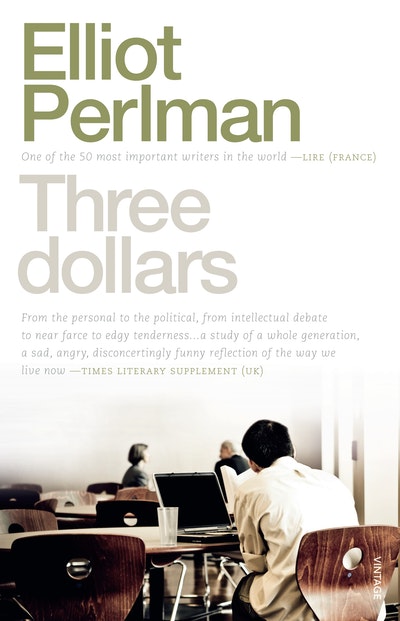Elliot Perlman’s first novel is at once a gripping narrative and an eye-opening look at neoliberalism. The book made many predictions about the future – several of which have since transpired.
In 1998 Elliot Perlman’s debut novel Three Dollars was introduced to the world to much acclaim. ‘Encore! Bravo! More please!’, wrote the Sunday Herald Sun, as multitudes of other positive reviews chimed in to affirm Perlman’s place in the Australian literary world.
Twenty-five years on, the sense of urgency evoked by the novel is strong as it was in 1998 – perhaps even stronger.
Stirring up sensations of ‘anger and passion’, which the Sydney Morning Herald identified at the time as a mark of a writer with ‘genuine ability’, the book scathingly peels back the life of the everyman to reveal the perils of neoliberalism.
In considering the book from the present day, the plotline and characters are as believable as ever. And perhaps in our modern circumstances, the book is actually more compelling and more urgent now than it was on publication.
Revolving around a man named Eddie, the book follows the course of events that have led up to his current state: thirty-eight years old with a wife, Tanya, and daughter, Abby, only three dollars between them. Framing the narrative is Amanda, the platonic ideal of a woman, whom Eddie has known since childhood and whose life trajectory perfectly maps out the aspirational ascent to wealth often promised – seldom delivered – by ‘free-market economics’.
Though Tanya is brilliant, though Eddie is a chemical engineer, though they are good, honest people, the family is nevertheless failed by neoliberalism – a fact that is not coincidental, but rather built into the system itself.
One of the first Australian novels to confront questions of class, wealth, family, psychology, and relationships in the neoliberal era, Three Dollars opened the door to new conversations in Australia and beyond – conversations we’ve continued in our living rooms, on televised debates and in Parliament House over the past twenty-five years.
The New York Times called Three Dollars ‘a quirky cautionary tale that feels like a wake-up call,’ and with the clear-sightedness of retrospect, it’s obvious that Perlman’s cautions were well-founded. Rereading the book in 2023, readers will find several predictions that might have seemed far-fetched in 1998, but predictions that were ‘sadly inevitable’ to Perlman.
The questions posed by Three Dollars are the same ones that many of us are asking ourselves as interest rates rise and job cuts spatter the headlines: How does it feel to lose a job? How can you function as a good person in society when your sole motivation is making enough to survive? How does our self-identity intertwine with our ability to earn money, and what does that say about capitalism’s effect on individuality?
Likewise, the cards dealt to Eddie and his family have been the fate of many millions since the book came out. With the increase of gig work, the de-regulation of many sectors and the broader impacts of Covid on job security, people around the world are increasingly experiencing the desperation and destitution felt by Eddie and Tanya in Three Dollars.
Unlike Amanda’s reappearance in Eddie’s life, which occurs only once every nine and a half years, the events imagined in Three Dollars have occurred countless times, again and again, predictable in their repetition ad infinitum at a constantly accelerating pace for millions in Australia and around the world.
Simply call to mind the mass redundancies, casualisation of labour, and the zero-hour contracts that big tech has somehow sold as ‘seamlessness’ – and it’s easy to see the predictive nature of Perlman’s debut novel as well as the scrupulousness of his critical analysis, woven into a narrative plotline.
The twenty-fifth anniversary of Three Dollars is as good an excuse to read (or reread) the novel. And if you still need convincing, let the awards speak for themselves.
Three Dollars won the Age Book of the Year Award when it was published, the Betty Trask Award (UK), the Fellowship of Australian Writers' Book of the Year Award and was shortlisted for the John Llewellyn-Rhys/Mail On Sunday Book of the Year Award (UK) as well as for the Miles Franklin Literary Award. Elliot Perlman also co-wrote the screenplay for the film adaptation of Three Dollars, which received the Australian Film Critics' Circle Award for Best Adapted Screenplay as well as the A.A.C.T.A. Award for Best Adapted Screenplay.













